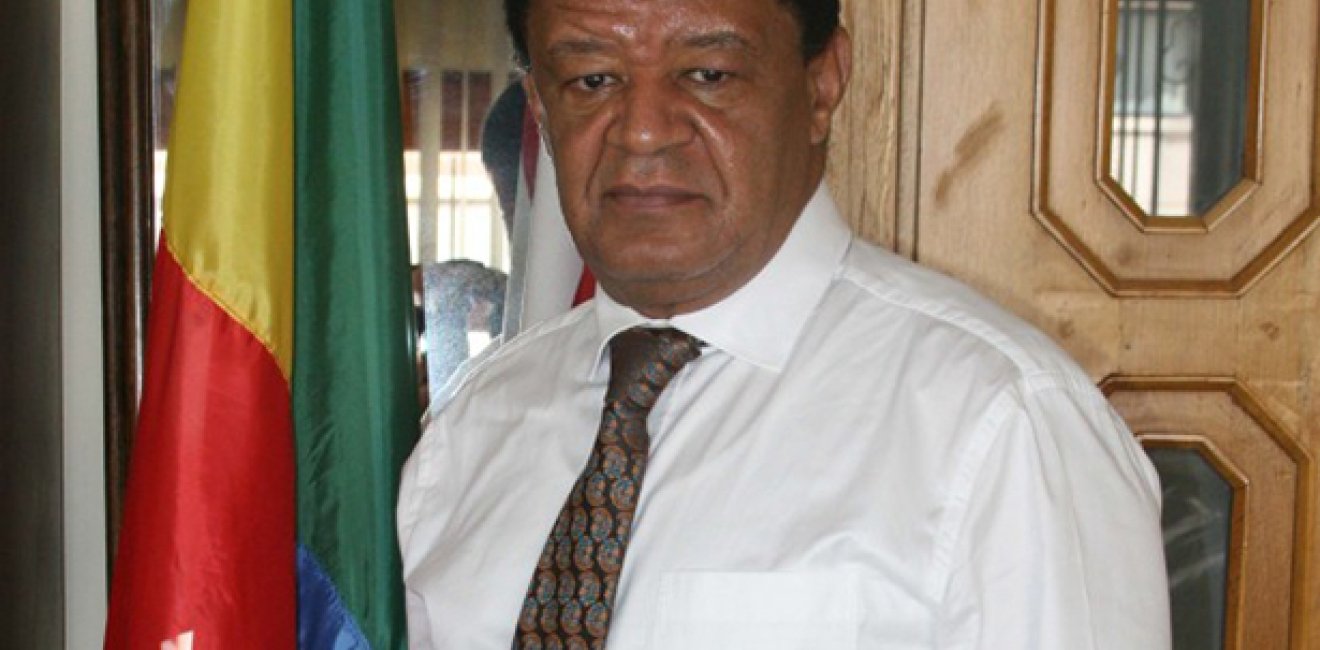
A blog of the Africa Program
Chinese Translation of the Week
On October 7th 2013, the Parliament of the Federal Democratic Republic of Ethiopia announced Mulatu Teshome as the new president of Ethiopia, replacing Girma Wolde-Giorgis, who had been the president of the country in the past 12 years. Meanwhile, this change of leadership in this far-away northeastern African country also led to jubilation in China. It is because this newly-elected president was once a student at one of the top Chinese universities –Peking University.
10月7日,埃塞俄比亚联邦民主共和国联邦议会宣布,由执政党提名的穆拉图·特肖梅当选为埃塞俄比亚新一届总统,接替已担任这一职位12年之久的吉尔马·沃尔德·乔治斯。远在非洲东北部的国家的一次领导人更换,却在中国引发了一场"欢腾"。原因是,这位新当选的总统曾是北京大学的留学生。
This article has been translated from Chinese. Click here to read the original version on Sina Finance.
Mulatu Teshome, 58, can speak fluent Chinese, and has profound knowledge of Chinese culture. All of these began 37 years ago, when he was selected by his high school to study in China.
In 1976, Mulatu set foot on the land of China for the first time as a government-funded student. He first studied Chinese language at Beijing Language and Culture University (BLCU).
Zhao Yupin, Associate Professor at BLCU, taught "Basic Chinese" course for Mulatu at that time. Recalling this student, she was very impressed. She said that most of her students in her class were government-funded students coming from African countries. "Comparing to other foreign students at the university, he was more mature, and very hard-working."
After a year of language study, Mulatu successfully got his diploma from BLCU, and continued his study at Peking University learning philosophy. In 1982, he received the bachelor degree at Peking University.
Lou Yulie, who was once the lecturer of "Chinese History of Philosophy" for Mulatu, is nearly 80 years old now. He was surprised but also proud when he learned that his former student became the president of a country. "I can't even imagine it at that time!" said the old professor.
According to Huang Daolin, the deputy director of the Foreign Scholar Office (now the International Students Division) at Peking University and an old acquaintance of Mulatu, Mulatu was enrolled in the Department of Philosophy after another year of study. But he wanted to transfer into the School of International Studies. "He thought learning international politics was more beneficial for his future." Huang Daolin said. He helped Mulatu to transfer and the latter got his master degree with diligent work.
The study experience in China laid the solid foundation for Mulatu's political career in the following years. In 2012, when BLCU was celebrating its 50th anniversary, Mulatu sent his congratulations specially. In his letter, Mulatu said China was his second home, and he loved China a lot. He would like to come back to visit China more frequently, and make more contributions to the development of Ethiopia- China friendship. He also wished his son to study in his alma mater BLCU in the future.
Mulatu was not the only foreign leader who achieved degree in China. The following list shows a lot more:
- April 2005, Lee Kuan Yew, former Prime Minister of Singapore, Honorary Doctorate in Laws, Shanghai Fudan University
- October 2001, Gloria Macapagal-Arroyo, former Philippine President, Honorary Doctorate of Economics, Tsinghua University
- March 2002, Gustavo Noboa Bejarano, former Ecuadorian President, Honorary Doctorate in Laws, the Chinese People's University
- June 2002, Askar Akayev, former President of the Republic of Kyrgyzstan, Honorary Doctorate, Peking University
- December 2002, Nursultan Nazarbayev, Kazakh President, Honorary Doctorate, Peking University
- March 2004, Mahathir Mohamad, former Malaysian Prime Minister, Honorary Doctorate, Tsinghua University
- June 2004, Nestor Kirchner, former Argentine President, Honorary Doctorate in Laws, Shanghai Fudan University
- April 2005, Alvaro Uribe, former Colombian President, Honorary Doctorate, Peking University
- April 2005, Olusegun Obasanjo, former Nigerian President, Honorary Doctorate, Peking University
- May 2005, Alejandro Toledo, former Peruvian President, Honorary Doctorate, Peking University
Article translated by Laiyin Yuan, Staff Intern for the Kissinger Institute on China and the United States at the Wilson Center.
Photo courtesy of Addis Ababa Online.

Africa Program
The Africa Program works to address the most critical issues facing Africa and US-Africa relations, build mutually beneficial US-Africa relations, and enhance knowledge and understanding about Africa in the United States. The Program achieves its mission through in-depth research and analyses, public discussion, working groups, and briefings that bring together policymakers, practitioners, and subject matter experts to analyze and offer practical options for tackling key challenges in Africa and in US-Africa relations. Read more

Explore More in Africa Up Close
Browse Africa Up Close
The Innovative Landscape of African Sovereign Wealth Funds



